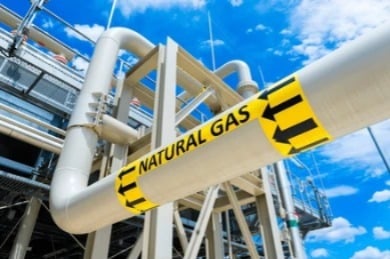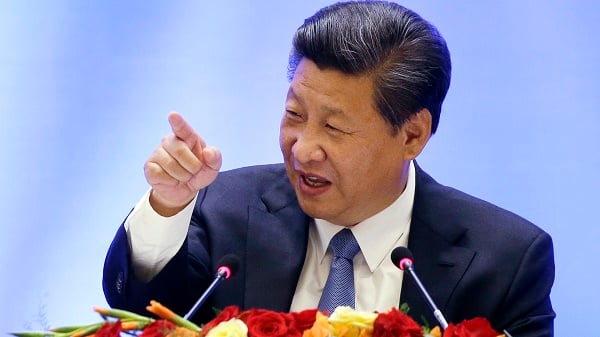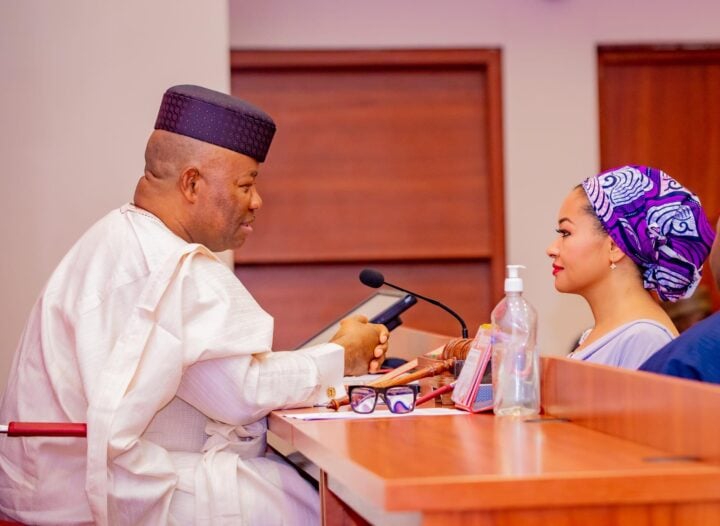The Nigerian Midstream and Downstream Petroleum Regulatory Authority (NMDPRA) says it has reduced the price of natural gas for power generation companies (GenCos) to $2.13 per metric million British thermal units (MMBTU).
This signifies a $0.29/mmbtu reduction from the previous price of $2.42 per mmbtu in 2024.
The authority announced the new domestic base price (DBP) and wholesale prices of natural gas for 2025 in a circular seen by TheCable on Thursday.
The DBP is the minimum amount at which natural gas can be sold to the domestic market.
Advertisement
According to the circular, published on the authority’s website, the new price took effect in April.
The new DBP is expected to impact the power generation sector as Nigeria relies on gas to generate over 70 percent of its electricity.
In the circular, signed by Farouk Ahmed, chief executive officer (CEO) of the NMDPRA, the authority said commercial users will now buy natural gas at $2.63 per mmbtu as against the previous price of $2.92 per mmbtu.
Advertisement
The agency also set the price for “gas base industries (ammonia, urea, methanol, low sulphur diesel)” at $0.9 per mmbtu (floor price) and $2.13 per mmbtu (ceiling price), respectively.
Commenting on the development, Ahmed said the latest price review aligns with Section 167 of the Petroleum Industry Act (PIA) of 2021 — the third and fourth schedule — which mandates the regulator to determine the domestic base price and the marketable wholesale price of natural gas supplied to the strategic sectors.
“The DBP at the marketable gas delivery point under Sector 167(1) and other provisions of the PIA shall be determined based on regulations which incorporate among such other matters, the following principles,” he said.
“(a) The price must be of a level to bring forward sufficient natural gas supplies for the domestic market on a voluntary basis by the upstream producers.
Advertisement
“(b) The price shall not be higher than the average of similar natural gas prices in major emerging countries that are significant producers of natural gas.
“(c) Lowest cost of gas supply based on three-tier cost of supply framework.
“(d) Market-related prices tied to international benchmarks.”
Accordingly, the NMDPRA set the 2024 domestic base price at “$2.13/MMBTU and wholesale prices for natural gas in strategic sectors, effective 1st April 2025”.
Advertisement
‘GAS PRODUCERS SHOULD REDUCE THEIR PRICES’
Speaking on the price adjustment, Oyeyemi Oke, a partner at AO2LAW, said the new development implies that the government is able to make gas available at a cheaper rate, especially for power generating companies.
Advertisement
“But what this also means is that there is a possibility that other gas producers may reduce their gas pricing,” he said.
“In general, it is a good thing for the general Nigerian gas domestic market but this is subject to adjustment of pricing by gas producers. Since we have a new domestic gas base, gas producers should reduce their prices.”
Advertisement
‘GAS PRICE CUTS DOES NOT MEAN LOWER POWER COST’
Oke further said the reduction in gas price does not necessarily “mean it would lead to lower power cost”.
Advertisement
“Gas is not the only element for power generation. There is also the fixed-term element as regards to the infrastructure,” the expert said.
“So, it doesn’t necessarily mean that we would get lower power cost but the long-term effect is that if it is sustainable, over a period of time, in terms of what domestic gas price should be, perhaps there will be some marginal reduction.
“But if you look at the analysis, what is the gas price as at today, or before the new price regime, is about $2.42/mmbtu and the new price is about $2.13/mmbtu.
“So, in the real sense, what you have in terms of savings, is about 29 cents, which is marginal and may not necessarily affect the bottom line in terms of what the power cost. Again, the cost of infrastructure is quite high, which takes a large part of power cost. Power cost has the fixed and variable elements.”
He said the fixed element is the cost of equipment and infrastructure while the variable cost is the gas, adding that “sometimes, the fixed cost could be higher than the variable cost”.
‘PRICE REDUCTION MAY IMPACT OTHER INDUSTRIES’
Speaking further, Oke said the potential reduction is not applicable only to GenCos.
“While it appears that there is clarity as to the power sector and gas–based industries being referred to as strategic sectors, the use of ‘commercial sector’ appears wide and nebulous which has elicited questions as to which sector would qualify as ‘commercial sector’,” he said.
“In our view, any domestic project, venture, industry, or commercial undertaking which utilizes gas within the domestic market may qualify as “commercial sector”.”
However, Eko Uket, executive secretary of the Network for Electricity Consumers Advocacy of Nigeria, believes that the price reduction will have minimal impact on helping to buffer power generation.
He said the underlying problem is “denominating the price of domestic gas in dollars”.
Uket also said although the base price of domestic gas was reduced, transportation costs as well as statutory fees remain unchanged.
He added that the reduced gas price would not necessarily lead to lower power cost as there are other factors that determine power cost like transportation and equipment.









